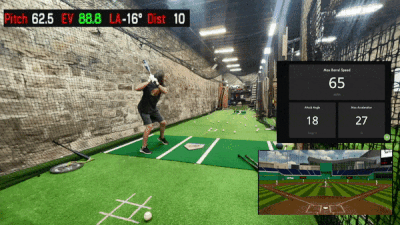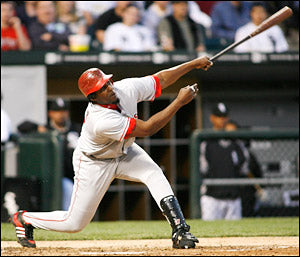Practice is an essential aspect of developing the skills of young athletes. It's an opportunity for them to learn new techniques, hone existing ones, and ultimately become better at their sport. There are two main types of practice: blocked practice and random practice. In this blog post, we'll explore the advantages of random practice over blocked practice in youth athletes.
Blocked practice is when an athlete performs the same activity or task repeatedly in a row. This type of practice can be useful in the early stages of learning a new skill, as it allows the athlete to focus solely on that particular technique. However, in the long term, it can be limiting and even detrimental to the development of young athletes.
On the other hand, random practice is when an athlete performs a variety of different activities, movements and tasks in a random order. This type of practice has several advantages over blocked practice, particularly for youth athletes.
First, random practice improves retention of skills. When athletes are exposed to a variety of different activities, they are more likely to retain what they've learned and be able to apply it in game-like situations.
Second, random practice enhances flexibility and adaptability. By performing different activities in a random order, young athletes are forced to think on their feet and adapt to new situations. This is an important skill for them to develop, as it will help them to be more confident and effective in real-game scenarios.
Third, random practice promotes focus and mental agility. By constantly changing up the activities and tasks, young athletes are forced to stay alert and focused. This helps to develop their mental agility and keeps them from becoming bored and burned out.
Finally, random practice increases motivation and enjoyment. When athletes are exposed to a variety of different activities and tasks, they are less likely to become bored and more likely to enjoy their practice sessions. This increased enjoyment can lead to increased motivation, which is essential for their long-term success in their sport.
The science behind random practice supports the benefits of this type of practice. Theories of motor learning and skill acquisition suggest that random practice helps to develop motor skills by exposing athletes to a wide range of different challenges and situations. Studies have also demonstrated the benefits of random practice, showing that it leads to better results than blocked practice in a variety of different sports.
Coaches can implement random practice in youth athletics by incorporating game-like scenarios, offering variety and challenge, encouraging experimentation, and mixing up the order of activities. To measure the success of random practice, coaches can track the performance of their athletes in game-like situations and compare it to their performance before incorporating random practice.
In conclusion, the advantages of random practice over blocked practice in youth athletes are numerous. Random practice improves retention of skills, enhances flexibility and adaptability, promotes focus and mental agility, and increases motivation and enjoyment. By incorporating random practice in youth athletics, coaches can help young athletes to reach their full potential and enjoy a lifetime of success in their sport.
Further Research:
There have been several studies conducted to compare the effects of random practice and blocked practice on skill acquisition and improvement in sport and physical activities. Some of the key studies include:
-
"Random Practice, Blocked Practice, and Distribution of Practice in Motor Skill Acquisition" by D.A. Wrisberg and J.D. Smith (2000) - This study compared the effects of random practice and blocked practice on the acquisition of a dart-throwing task and found that random practice resulted in better performance and faster learning than blocked practice.
-
"The Effects of Blocked and Random Practice on the Acquisition and Retention of a Discrete Ballistic Skill" by S.A. Shea and J.A. Morgan (1979) - This study investigated the effects of blocked and random practice on the acquisition and retention of a discrete ballistic skill and found that random practice resulted in better performance and greater retention of the skill compared to blocked practice.
-
"Random Practice, Blocked Practice, and Skill Learning" by P.L. Ward, J.M. Sides, and L. Hodges (2006) - This study investigated the effects of random and blocked practice on skill learning in a catching task and found that random practice led to better performance and greater transfer of the skill to a game-like situation compared to blocked practice.
-
"The Effect of Blocked and Random Practice on Basketball Free Throw Shooting Performance" by T.E. Roberts and J.A. Barba (2005) - This study compared the effects of blocked and random practice on basketball free throw shooting performance and found that random practice resulted in better performance and greater skill retention compared to blocked practice.








